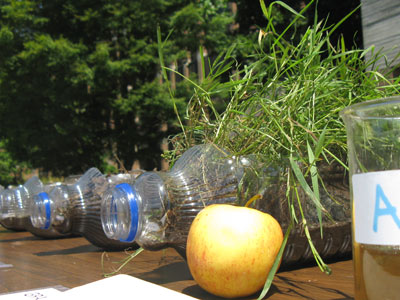The following links and leads are to help you get involved and learn more about soil!
Get involved:

- Be aware of where your food comes from and what soil management practices were used to grow it.
- Compost – turn your food scraps and yard trimmings into compost. Most larger municipalities have composting programs and provide useful information on how to create compost. Check out the composting section of the City of Vancouver’s website, or search your own municipality’s website to find out what is available.
- Practice the Four R’s (re-think, reduce, reuse, recycle) – the fewer things that go into landfills, the more land is available to support ecosystem processes.
- Assess the impact that your actions have on soil at a local and global level and strive to do something about it!
- Vote in elections for candidates whose policies best support sustainable soil use
Keep learning – either on your own schedule or formally:
- Join a group or a soil science society – check the list of Provincial Organizations as well as National and International Societies compiled by the Canadian Society of Soil Science.
- Take a class – several Canadian universities and colleges offer soil-related courses and programs
- Follow a soil-related blog like “Wired on Soils” created by the Soil Science Society of America
- Visit ‘I Hart Soil’ website created by the Soil Science Society of America
Envirothon
Envirothon is an annual hands-on environmental education competition for high school students, designed to encourage team work, problem-solving skills, and public speaking skills while fostering an appreciation for current environmental issues. There are five main subject areas: soils and land use, aquatic ecology, forestry, wildlife and a theme topic, which changes every year.
Envirothon combines the exhilaration of team competition, the challenge of learning about environmental issues, and the experience of using this knowledge in hands-on activities. This approach to environmental education helps students develop skills necessary to address environmental issues, such as team work, problem-solving, critical thinking, and public debate.